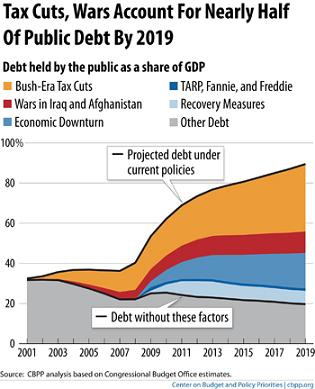In “Nature Without the Nanny State,” Timothy Egan writes about the record number of fatalities in national parks this year. The parks are receiving record numbers of visitors — it’s a cheaper vacation than Disney World, I assume — and also record numbers of people who lack the sense to not fall off cliffs or over waterfalls.
I’ve already written about the three damnfools in Yosemite who climbed over a guardrail to wade in rapids just a few feet above a 317-foot waterfall, and surprise! They lost their footing on slippery rocks and were swept to their deaths.
I mean, it’s one thing to be killed by something unexpected. Egan discussed one hiker who was aggressively stalked and gored by a mountain goat, which is unusual behavior for a mountain goat. Stuff does happen. But people are doing things that anyone with the sense God gave igneous rocks would not do. The Forest Service is responding by putting up more warning signs and guard rails, but as one Yosemite park ranger said, “We’ve got more than 800 trails and 3,000-foot cliffs in this park. You can’t put guardrails around the whole thing.â€
Nor should you, I say. And, anyway, several of the fatalities have occurred in places that were already guardrailed and warning signed. I don’t know what else the Park Service could do.
Egan writes, “My experience, purely anecdotal, is that the more rangers try to bring the nanny state to public lands, the more careless, and dependent, people become.” I suspect, however, that people are not becoming more careless because the rangers are trying to nanny them. I suspect it’s a combination of people with no experience with wilderness who also have no respect for government warning them to not be damnfools and try to pet the bears.
And from here I’d like to go into a rant on how a generation of people who have enjoyed consumer and workplace and other safety regulations have been bamboozled into thinking they don’t need those regulations, but I have to go somewhere now. I may take this up again when I get back.
Update: OK, I”m back. Buckyblue said in the comments that you don’t find as many warning signs and guard rails outside of the United States. That squares with what I observed in my trip to Britain a few years ago. I noticed a widespread assumption that people had the sense to not plunge out of castle turrets to their deaths on the rocks below, and that they didn’t need to be warned, for example. And I suspect Buckyblue is right that the signs and guard rails are as much about limiting liability as anything else.
Which leads me to wonder if signs and guard rails actually do any good, if people dumb enough to wade in rapids just above a waterfall don’t heed the warnings anyway. My suspicions are that the signs and guard do some good. There are people who may not be all that bright, but neither are they risk takers.
Perhaps I shouldn’t draw too many conclusions about our crazy times without knowing if the ratio of deaths to visitors in National Parks is going up, or whether it’s about what it has been for years. However, I’d be willing to pay money if someone could do psychological autopsies of people who do damnfool things in National Parks and get themselves killed, to see if there are any commonalities to explain the phenomenon. And why do I suspect a disproportionate number of them may be teabaggers?

